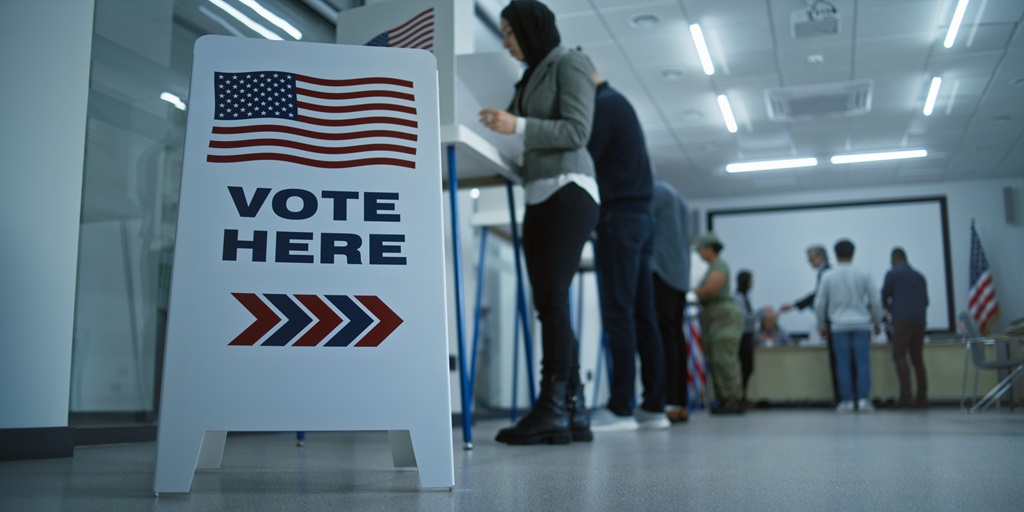Over the last decade, many politicians have called for overhauling the United States’ election systems by mandating strict voter ID for both registering to vote and actual voting. Many have justified this stance by either claiming the U.S. election system is vulnerable to fraud, or that fraud is already a common occurrence. In May, House Speaker Mike Johnson even said that, despite a lack of evidence, he knows “intuitively” that “a lot of illegals are voting in federal elections.” Throughout the Republican National Convention in July, similar claims abounded.
However, a close examination of the evidence put forward by proponents of these strict limitations on voting shows just how extraordinarily rare noncitizen voting truly is—and how there is no burning need to impose new restrictions on access to voting.
The conservative Heritage Foundation has campaigned hard against “voter fraud.” It proudly championed legislation passed by the House in July which would mandate the use of photo ID for all voter registration. Importantly, it also maintains a database of 1,546 “proven instances of voter fraud,” where Heritage researchers have collected criminal cases which have been brought against people who have committed some kind of electoral fraud, either registering to vote or voting when ineligible.
It’s this database—created and maintained by Heritage itself—that helps reveal how there is no crisis of noncitizen voting.
A close review of the cases in Heritage’s database reveal that the organization has documented just 68 total cases of noncitizen voting going back to the earliest cases documented in the 1980s. That’s less than 5% of the cases in their database, total. The remaining cases all involve U.S. citizens.
What do those 68 cases tell us? First, it demonstrates that proven cases of noncitizen voting are incredibly rare. Even an organization engaged in a major effort to document voter fraud produced fewer than 70 proven cases of noncitizens who voted in elections in the last 40 years. Given that over one billion votes have been cast over that period in thousands of elections, the incidence of proven noncitizen voting is below 0.0001%.
This is in line with other analysis carried out following recent elections. For example, a 2017 Brennan Center analysis of 42 jurisdictions which tabulated 23.5 million votes in the 2016 election found that noncitizens were referred for investigation in just 30 cases—or 0.0001% of votes.
Second, the data also tells us that proven cases of undocumented immigrants voting in elections are even rarer. Just 10 undocumented immigrants in total appear in the Heritage database for unlawful voting. Further investigation outside the database has uncovered one other instance; an elderly Cuban man with a work permit but no permanent lawful status, who was encouraged to vote by a poll worker in 2016. Several of the other 10 cases involve a person living under an assumed name and identity of a U.S. citizen or obtaining citizenship through fraudulent documentation. In those circumstances, the person voted under the identity of U.S. citizen with valid evidence of status—even though they were not the person they claimed to be.
Third, the data tells us that most cases of noncitizen voting involve lawful permanent residents—people with green cards who have been in the community for years, many who end up voting due to bad information given by government officials themselves.
The most common scenario in the cases included in Heritage’s database includes a lawful permanent resident who was encouraged by a government official to vote or falsely told that they were eligible.
For example, following the 2016 election, prosecutors in North Carolina conducted an extensive audit and charged 19 people with voting without being a citizen. Nearly all were lawful permanent residents who had not intended to violate the law. One defendant had already passed his citizenship test but had been turned away from the oath ceremony because the room was full and falsely thought he was already a U.S. citizen. Another defendant was a 70-year-old woman from South Korea who was encouraged to vote by a fellow church member and who was never turned away at a poll center despite presenting her green card as ID. In nearly all of these cases, the person pled guilty to misdemeanor offenses and were fined less than $1,000.
The lessons to take from Heritage’s own database are that noncitizen voting is not a serious problem and that to the extent rare cases occur, they would be best addressed by better training government workers to recognize immigration documents and follow procedure. The majority of the proven cases in the Heritage database would never have happened but for government workers making mistakes, yet few of the policies proposed by Heritage would even resolve these issues.
Thus, given that only an infinitesimally small number of noncitizens erroneously vote each election, politicians should abandon a misguided effort to transform our electoral systems at high expense and extremely low benefit.
FILED UNDER: Voting













